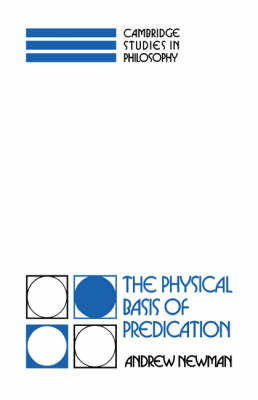Cambridge Studies in Philosophy
2 total works
In this book about metaphysics the author defends a realistic view of universals, characterizing the notion of universal by considering language and logic, the idea of possibility, hierarchies of universals, and causation. He argues that neither language nor logic is a reliable guide to the nature of reality and that basic universals are the fundamental type of universal and are central to causation. All assertions and predications about the natural world are ultimately founded on these basic universals. A distinction is drawn between unified particulars (which reveal natural principle of unity) and arbitrary particulars (which lack such a principle); unified particulars are the terms of causal relations and thus the real constituents of the world. The world is not made up of events but of unified particulars and basic universals.
This work presents a version of the correspondence theory of truth based on Wittgenstein's Tractatus and Russell's theory of truth and discusses related metaphysical issues such as predication, facts and propositions. Like Russell and one prominent interpretation of the Tractatus it assumes a realist view of universals. Part of the aim is to avoid Platonic propositions, and although sympathy with facts is maintained in the early chapters, the book argues that facts as real entities are not needed. It includes discussion of contemporary philosophers such as David Armstrong, William Alston and Paul Horwich, as well as those who write about propositions and facts, and a number of students of Bertrand Russell. It will interest teachers and advanced students of philosophy who are interested in the realistic conception of truth and in issues in metaphysics related to the correspondence theory of truth, and those interested in Russell and the Tractatus.

